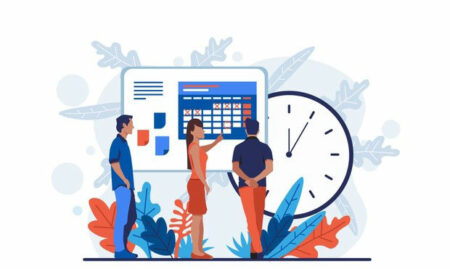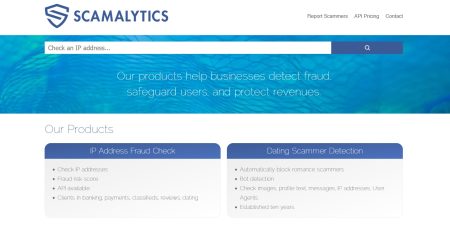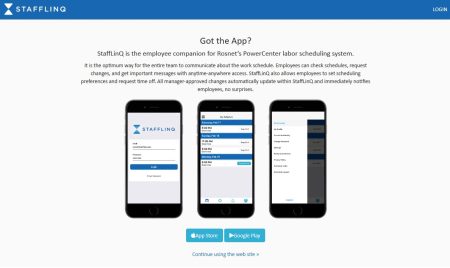Businesses take on debt for a wide variety of reasons, but at the end of the day, it’s because business owners see an opportunity and want to jump on it. They don’t have the funds at their disposal to do so right away, so they take out a loan to make it happen.
Often times, taking on debt seems like a wise business decision. Sometimes, it doesn’t quite pan out. Businesses start to see their bottom line shrink each month as more money goes out to their creditors. In fact, 82% of businesses fail because of cash flow issues. Before they know it, they’re in over their head with business debt and struggling for options.
This is where many business owners start to toss around the dreaded B word: bankruptcy. However, there are less dramatic and less harmful ways to get out of debt. Debt consolidation is an option for almost all forms of unsecured debt, and it’s available to both individuals and businesses in a wide variety of different circumstances.
That said; it’s not quite as easy as just looking up a debt consolidation company and having it take the reins for you. Not all debt consolidation companies are the same, and the effectiveness of your consolidation often depends on the vendor that you’re working with.
Past that, the debt consolidation industry is rife with bad apples that take advantage of businesses and individuals in desperate situations, defrauding them out of the little money that they have left. It’s not pretty, but it does happen.
So, how do you choose the right debt consolidation company? Follow the guidelines below and you’ll be in good shape.
What is debt consolidation?
Before we get into how to choose a debt consolidation company, we should first make sure that you know exactly what debt consolidation is.
In its simplest terms, consolidating your debt means combining it into one big financial package. Usually, that means taking out a loan that’s large enough to pay off several of your debts at once. You pay off the debts using that loan, effectively rolling them into the loan. Then, you focus on paying off that singular loan.
Quality debt consolidation also comes with other benefits. In the ideal world, you’ll also reduce your overall interest rates and payments so that you pay less on your debt over time. The lifetime of your debt may expand, though not necessarily, which can help to bring your monthly payments down, as well (although you should be certain that it’s not bringing the lifetime cost of your debt up by extending your payment period).
Aside from loans, there are other forms of debt relief that often fall under the umbrella of debt consolidation. Debt management programs, for instance, entail hiring a company to negotiate with your creditors to reduce your monthly payments, bring down your interest rates, waive late fees, and devise a payment schedule that will allow you to pay off your debts quickly. Debt settlement programs, on the other hand, entail hiring a company to negotiate with your creditors to get your debt discharged for much less than the total amount that you owe.
Both debt management and debt settlement companies often are called debt consolidation companies, and much of the advice below applies to them as well.
Now that you understand the idea behind debt consolidation, we’ll help you to how to choose a company that can help you out. The first step: evaluate all of your options.
Evaluating your options
We already mentioned debt consolidation loans, debt management, and debt settlement. However, do you know what each one is used for?
Debt consolidation loans
Debt consolidation loans work best if you have decent credit, access to a lender that you trust, and good financial habits. With good credit and a reliable lender, you shouldn’t have much of a problem securing a favorable loan with low interest rates and sensible payments. Once you get the loan, the ball is pretty much in your court to pay your debts and then pay down the loan without running up new debt. If you have good financial habits, this shouldn’t be a problem. However, if you struggle to spend responsibly, you could undo the good that the debt consolidation loan did in the first place.
Debt management
Debt management can be helpful if you don’t have good credit and could use a little bit of remedial financial education. With debt management, you’re generally working with a credit-counseling agency. This agency will work with you to create a debt management plan tailored to your solution, complete with budget help and a payoff schedule that makes sense with your income and expenditures. It also manages the payments to your creditors, meaning you have more structure for keeping up with your debts.
Debt settlement
Debt settlement plans are similar to debt management plans in a few key ways. With debt settlement, you’re making payments to the company, which then disperses them to your creditors on your behalf. This company also negotiates with your creditors to get a more favorable resolution to your debt woes.
The big difference is that, compared to a debt management company, a debt settlement company is playing hardball. It ceases all payments to your creditors in order to gain an advantage in negotiations, generally acting as a buffer between you and your creditors’ harassment. It keeps your monthly payments in escrow, letting them build up over time. It then uses that big, lump sum to pay your creditors all at once at a vastly reduced rate. Your creditors often take the deal, seeing that this is their best chance to make back some of their money.
For all of these reasons and more, debt settlement is often a good option when your debt is out of control and other debt relief options can’t help.
Now that you understand your options a bit more, you’ll know what kind of companies to look for. Next up is how to evaluate those companies.
Check the company’s BBB rating
The Better Business Bureau exists solely to track the reputation of businesses. By allowing customers to lodge public complaints against businesses, and then logging those complaints, the BBB creates a public record of all the times a business has failed to deliver on promises.
For these reasons, it’s a great place to start when you’re researching a debt consolidation company. Head over to the BBB and enter the company’s name to find its profile.
Here, you’ll find all sorts of juicy information, including past complaints and their resolutions. If you find anything here, check out the details to see they make you feel about the company. Be mindful that having a few customer complaints here and there is perfectly normal for any company.
The quickest shorthand for the company’s quality, though, is its BBB rating, which aggregates all of this data into a letter grade. A company without many complaints against it, or complaints that have been resolved positively, usually ranks as an A or B. A company with a bad track record, meanwhile, likely grades as failing. The grade you see here should give you a glimpse into a debt consolidation company’s reputation, yet not the full picture.
Check unbiased third-party reviews
Aside from the BBB, other third-party review sites allow customers to air their grievances if a company has done them wrong. Try browsing a few (TopTenReviews is a good place to start) to see if you can find the debt consolidation company that you’re researching. You can also Google “[COMPANY NAME] reviews” and see what pops up.
A word of warning, though: it’s not that hard to fake reviews, positive or negative. Make sure you read several and do your best to try to discern if they’re real or not. Believing a fake review is worse than doing no research at all, so be careful.
Ask about fees and other charges
If you want to figure out your best debt consolidation option, then you need the full picture. Often, in the initial stages, a debt consolidation company won’t be super forthcoming about the various fees and charges that its service entails. It wants to draw attention to its product and the work that it can do for you, not get hung up on processing fees.
As an informed consumer, though, it’s on you to ask the company to account for any fees that might pop up in the debt consolidation process. If it can’t give you an exact number, ask for an estimate. Then, add those numbers to your overall debt consolidation calculations. Knowledge is the key to not getting nickel-and-dimed, especially when it comes to debt consolidation.
Understand the process you’re about to enter
Similar to above, many debt consolidation companies gloss over key details of their process when pitching a new client. Again, they don’t want you to focus on details that, in their eyes, are relatively minor. They just want to seem like they’re pitching the magic solution to your problems.
While it might seem like a dry subject, you should push them to give you a full accounting of the process from start to finish. This not only will give you an idea of what you’re in for, it will also help you to determine if the company has good intentions.
Figure out if you’re getting a good deal
As you get closer to actually choosing a debt consolidation company, you should have plenty of real numbers to evaluate who is going to give you the best deal. The three most important: length of terms, interest rate, and monthly payments.
Length of terms
How long is the debt consolidation process going to take? How long until you’re debt-free? What makes the most sense for your situation?
Remember, both long terms and short terms have their benefits. Long terms allow for lower monthly payments but can lead to you paying more than is necessary in interest over time. Short terms require higher payments but reduce interest and get you out of debt sooner.
If you’re serious about getting out of debt soon, then you should look for the shortest terms you can responsibly afford.
Interest rate
There’s no mystery here: all other things being equal, lower interest rates are better. See who can give you the best rates.
Monthly payment
Make sure that you can afford your monthly payments comfortably. You don’t want to get into a situation where you can just barely afford your payments. You might get better interest rates and a shorter payoff by taking a higher monthly payment, but you don’t want to be in danger of falling behind on your payments.
Watch out for red flags
Finally, make sure that you’re not being scammed. If you checked the BBB and read reviews as we cautioned above, you should have weeded out most of the scammers. Still, some subtler red flags are of note.
Over-promising
If your debt consolidation provider is promising overnight results, total guarantees, and a process that requires relatively little work or sacrifice on your part, then it’s over-promising. Consolidating debt is not easy or cheap. Anyone who tries to tell you otherwise is trying to con you, thus you’re better off ignoring these folks.
Pushiness
Scammers are impatient to make the sale. Once they have your money, it’s over for them, as they don’t plan to do any real, valuable work. For this reason, they’ll often be pushy, engaging in high-pressure sales tactics in order to bully you into signing on the dotted line. If you ever feel uncomfortable or pressured to do anything in a debt consolidation situation, get out.
Bad (or no) reputation
As we’ve already said, you can check reviews to see if the potential debt consolidation company has a reputation for defrauding innocent people. You should also be wary if it has no reputation, meaning no reviews, no news articles, no BBB profile, no website, etc. While it’s perfectly possible that it’s just a new debt consolidation company, you also don’t want to be the first, unwitting victim of a new scheme.








